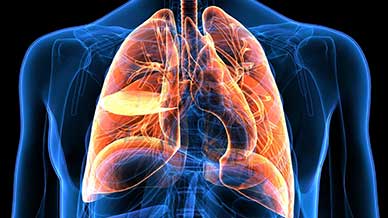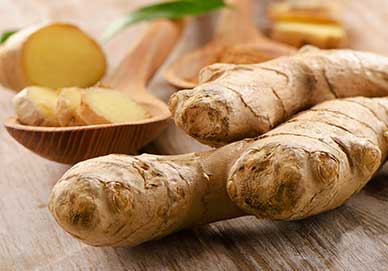Most people view changes in vision as inevitable parts of aging. However, there are natural ingredients for healthy vision that may be able to protect against, slow or even reverse certain age-related vision problems.
We depend on our vision for a variety of tasks and may even take it for granted. From driving to shopping to enjoying artwork, our eyes are in many ways the unsung heroes of modern life. However, many people do not take steps to protect their vision and eyesight until it is too late. If you are interested in maintaining your vision for a lifetime, there are a few ingredients for healthy vision that should be a part of your diet or supplement regimen. It is possible to enjoy good eyesight over a long and healthy life with the right nutrition and preventative care.
Natural Building Blocks and Ingredients for Good Vision
 Exactly what nutrients and vitamins help to sustain good vision? Several research studies have given us a solid idea about which natural ingredients work best. Macular degeneration is one of the major causes of vision loss associated with aging. Over years and decades, most people develop yellow deposits in their maculae, that are called drusen. We know from several studies that antioxidant vitamins can protect against much of the damage from macular degeneration by preventing these deposits of drusen. These antioxidants include vitamins such as vitamin C, vitamin E, beta carotene, zinc and copper. In fact, when these vitamins are taken together, they have been found to reduce rates of macular degeneration by around 25 percent, in addition to their other health benefits.
Exactly what nutrients and vitamins help to sustain good vision? Several research studies have given us a solid idea about which natural ingredients work best. Macular degeneration is one of the major causes of vision loss associated with aging. Over years and decades, most people develop yellow deposits in their maculae, that are called drusen. We know from several studies that antioxidant vitamins can protect against much of the damage from macular degeneration by preventing these deposits of drusen. These antioxidants include vitamins such as vitamin C, vitamin E, beta carotene, zinc and copper. In fact, when these vitamins are taken together, they have been found to reduce rates of macular degeneration by around 25 percent, in addition to their other health benefits.
Resveratrol, an antioxidant naturally found in red wine and red grapes, also appears to help preserve vision by helping to protect against macular degeneration. However, this compound attacks the problem in a different manner—by working to prevent the abnormal growth of blood vessels that often accompanies macular degeneration. When cells in the eye begin to degenerate, the body compensates by forming new blood vessels to supply nutrients. However, these vessels themselves end up blocking vision. Resveratrol and other antioxidants appear to stop the new blood vessels from forming as quickly, reducing long-term damage to vision. As a benefit, antioxidants are also good for heart health and have a wide range of other health benefits as well.
Supplements for Eye Health and Good Vision
In addition to antioxidants, there are a wide range of supplements that can be taken to promote good vision for a lifetime. The combination of lutein and zeaxanthin also appears to protect against age-related damage to eyes. Because both lutein and zeaxanthin compounds filter out wavelengths of light that are most damaging to eyes, they can help to protect against the development of cataracts in addition to reducing the risk of macular degeneration. For this reason, they have long been included in supplements intended to support good eye health.
Lycopene and bilberry are two other supplements that have been found to prevent damage to eyes and preserve healthy vision. Lycopene, a compound naturally found in tomatoes and tomato products, has antioxidant benefits that can prevent aging in eyes. Bilberry is a more recent discovery. This small fruit, also known as the Chinese blueberry, has been found in studies to improve visual acuity and even night vision, two types of vision that often deteriorate as we age. It also may protect vision in people with glaucoma.
This is Workplace Eye Wellness Month, Take Care of Your Vision
 Why all this focus on vision? Most people wish to keep clear eyesight as long as we can. In addition, March is Workplace Eye Wellness Month, a time to focus on preventing eye damage and preserving good vision. In addition to taking ingredients for healthy vision listed above to help protect against age-related damage, there are several things you can do to preserve your vision in the workplace and beyond. These include:
Why all this focus on vision? Most people wish to keep clear eyesight as long as we can. In addition, March is Workplace Eye Wellness Month, a time to focus on preventing eye damage and preserving good vision. In addition to taking ingredients for healthy vision listed above to help protect against age-related damage, there are several things you can do to preserve your vision in the workplace and beyond. These include:
- Visit your eye doctor annually for a dilated eye exam to identify and treat early vision changes.
- Change lighting on computers and other devices to reduce glare. Glare filters also can be helpful.
- Place screens 20 to 26 inches away from the eyes, the distance that generally reduces strain.
- Take 20-second breaks to look at an object 20 feet away after every 20 minutes of reading. This is called the 20-20-20 rule.
- Use correct eye protection gear as required by the standards of your profession.
By following these recommendations, you can help prevent the damage that a lifetime of work and artificial lighting can do to the delicate tissues of your eyes. We depend on our eyes not just for work, but for leisure as well. Vision is too important to take for granted.
These ingredients for healthy vision and eye preserving tips should help you to keep your eyesight as clear as possible for decades to come. While some age-related damage cannot be avoided, we can do many things to slow or stop the sands of time.
 What does this mean for people who are not high-performance athletes? You may be having trouble building muscle mass or suffering more soreness than usual because of not getting enough of this important vitamin. Even in people who had no other health effects, the lack of vitamin D manifested itself in a higher rate of muscle injuries. Taking vitamin D may be as important to building strong muscles as eating enough protein.
What does this mean for people who are not high-performance athletes? You may be having trouble building muscle mass or suffering more soreness than usual because of not getting enough of this important vitamin. Even in people who had no other health effects, the lack of vitamin D manifested itself in a higher rate of muscle injuries. Taking vitamin D may be as important to building strong muscles as eating enough protein. Resveratrol has recently become popular due to its
Resveratrol has recently become popular due to its  How can a simple grape extract help promote healthy respiratory aging and protect against certain lung concerns? The antioxidant effects of resveratrol are believed to be one of its major benefits. In one study, when mice were given inhaled resveratrol, they saw
How can a simple grape extract help promote healthy respiratory aging and protect against certain lung concerns? The antioxidant effects of resveratrol are believed to be one of its major benefits. In one study, when mice were given inhaled resveratrol, they saw  People with asthma have
People with asthma have  There are several natural supplements that also may be beneficial for people who suffer from asthma and other respiratory concerns. Omega-3 fatty acids are currently the supplements with the most evidence backing them. Research on omega-3 for asthma suggests that these fatty acids have
There are several natural supplements that also may be beneficial for people who suffer from asthma and other respiratory concerns. Omega-3 fatty acids are currently the supplements with the most evidence backing them. Research on omega-3 for asthma suggests that these fatty acids have  Capsaicin, the molecule that makes chili peppers spicy, appears to have a variety of benefits in sustaining healthy cell growth. When this compound is added to petri dishes containing
Capsaicin, the molecule that makes chili peppers spicy, appears to have a variety of benefits in sustaining healthy cell growth. When this compound is added to petri dishes containing  If you wish to get more capsaicin and ginger in your diet for the health effects of these spices, there are a variety of options. Ginger is a common spice used in Asian foods as well as those from a variety of places. However, if you do not appreciate a spicy curry, ginger is also used in a wide range of traditional Western desserts such as gingerbread. Capsaicin can be more difficult for picky eaters to incorporate into their diets. It is present mainly in hot peppers such as jalapenos and habaneros, giving these peppers their heat and bite.
If you wish to get more capsaicin and ginger in your diet for the health effects of these spices, there are a variety of options. Ginger is a common spice used in Asian foods as well as those from a variety of places. However, if you do not appreciate a spicy curry, ginger is also used in a wide range of traditional Western desserts such as gingerbread. Capsaicin can be more difficult for picky eaters to incorporate into their diets. It is present mainly in hot peppers such as jalapenos and habaneros, giving these peppers their heat and bite. If you are concerned about lutein and brain health, there are a few ways to ensure that you get enough of this vital nutrient. First, eat several servings a day of foods rich in lutein, which include:
If you are concerned about lutein and brain health, there are a few ways to ensure that you get enough of this vital nutrient. First, eat several servings a day of foods rich in lutein, which include: